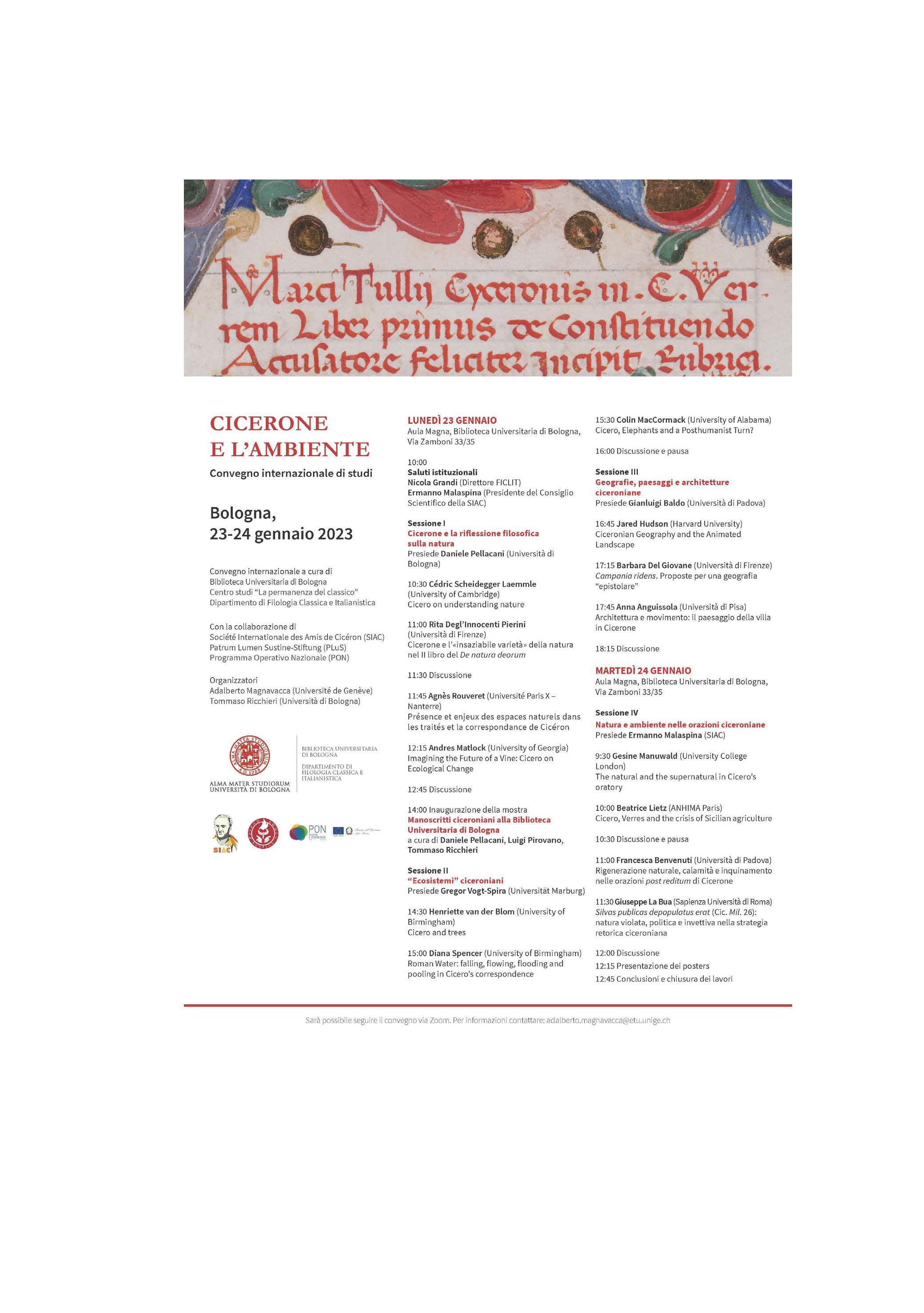Quae natura caduca est: Cicero and Lucretius on Ecological Change
DOI:
https://doi.org/10.13135/2532-5353/9346Abstract
Although starting from a common metaphor of vegetal descent (caducus), Lucretius and Cicero offer distinct perspectives on ecological change – that is, how species, particularly plants and humans, develop and relate to each other over time. Especially in the final two books of De rerum natura, Lucretius sketches a narrative of dwindling terrestrial fertility that closes off future reproduction via intraspecies lineages. By contrast, Cicero’s eco-writing in De senectute as well as the last book of De finibus, leaves open the possibility of interspecies fertility – what I call “feralization” – that can overcome the shared fallenness of plants and humans. To draw a conclusion out of this divergence, I propose an analogy between these ancient perspectives on the future and the horizons of the texts themselves by considering their reception history from our own crisis of eco-fertility.
Downloads
Downloads
Published
How to Cite
Issue
Section
License
Authors who publish with this journal agree to the following terms:
- Authors retain copyright and grant the journal right of first publication with the work simultaneously licensed under a Creative Commons Attribution License that allows others to share the work with an acknowledgement of the work's authorship and initial publication in this journal.
- Authors are able to enter into separate, additional contractual arrangements for the non-exclusive distribution of the journal's published version of the work (e.g., post it to an institutional repository or publish it in a book), with an acknowledgement of its initial publication in this journal.


 Ciceroniana On Line is recognised by ANVUR (the National Agency for the Evaluation of the University System and Research) as a CLASS A journal for the Sciences of Antiquity, Philology, Literature and History of Art (
Ciceroniana On Line is recognised by ANVUR (the National Agency for the Evaluation of the University System and Research) as a CLASS A journal for the Sciences of Antiquity, Philology, Literature and History of Art ( The journal is included in DOAJ. The DOAJ listing of the journals is available at
The journal is included in DOAJ. The DOAJ listing of the journals is available at  The journal is indexed in
The journal is indexed in  The journal has been included in ERIH PLUS. The ERIH PLUS listing of the journals is available at
The journal has been included in ERIH PLUS. The ERIH PLUS listing of the journals is available at 

